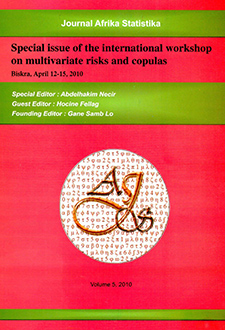Abstract
Consider the following demimartingale \begin{equation*} \sum_{j=1}^{k-1}f(j)(\exp (-\gamma \sum_{h=j+1}^{k-1}E_{h}/h)-\exp (-\gamma \sum_{h=j}^{k-1}E_{h}/h)), \end{equation*} where \(E_{1},E_{2},...\) are independent standard exponential random variables, \(\gamma>0\), \(k\) is a positive integer and \(f(j)\) is an increasing function of the integer $j\geq1$. We find general conditions under which the central limit theorem (CLT) holds and next apply the results to find the asymptotic behavior of the functional Hill within the Extreme Value Theory (EVT) field. This results show a new trend for the central limit theorem issue for non-stationary sequences of associated variables.
Citation
Gane Samb Lo. Adja Mbarka Fall. Harouna Sangaré. "A Central limit Theorem of dependent sums of standard exponential functionals motivated by extreme value theory." Afr. Stat. 13 (3) 1795 - 1822, October 2018. https://doi.org/10.16929/as/1795.134
Information





